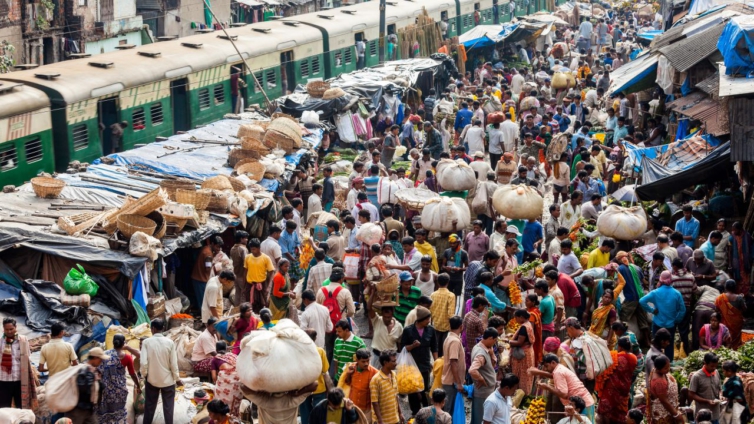A recent study has pointed out that Ghana's population could double in approximately 30 years if the current annual growth rate of 2.1% continues.
The study, which is part of the 2022 Social Development Outlook Projects that the population could reach 61.6 million by 2051.
Ghana’s population is currently dominated by females, accounting for 50.7% of the total population.
One notable trend indicated by the study is the decline in the proportion of children in the population. The percentage of children aged 0-14 years has reduced from 41.3% in 2000 to 35.3% in 2021.
Additionally, the Greater Accra Region has surpassed the Ashanti Region as the most populous region in the country in 2021.
The Total Fertility Rate (TFR) has also shown a decline from 6.4 in 1988 to an estimated 3.7 children per woman in 2021. Moreover, life expectancy at birth has increased over the years, rising from 57 years in 2000 to 64 years in 2020.
The report indicates that the implications of Ghana's population growth for development planning are significant. The changing population structure alongside aging becoming more prominent, necessitate careful consideration in policy decision-making while addressing the needs of the youthful population, the well-being of the elderly should not be overlooked.
The concentration of the population in certain regions, particularly in cities like Accra, Tema, and Ashaiman, poses challenges in areas such as housing, sanitation, road traffic management, food security, and national security.
To mitigate these issues, there is a need to redirect population movements from heavily congested cities to areas with lower population density, while implementing strategies to create job opportunities in those regions.
The study makes several policy recommendations. Strengthening the provision of the new pension scheme for individuals working in the informal sector through public education is suggested to attract more participation. Spatial economies of scale should be considered to steer migration away from highly populated cities.
This requires effective implementation of the decentralization policy, supported by efficient planning, resource mobilization, prudent financial management, and program monitoring and evaluation.
Another concern highlighted in the study is the influx of young migrants from the West African sub-region into Ghana.
To address potential national security risks, the Ministry of Interior, national security agencies, and the Ghana Immigration Service are urged to collaborate on a study to document these immigrants, determine their status based on the ECOWAS Protocol, and take appropriate action.
Latest Stories
-
SHS heads demand payment of outstanding funds before reopening of schools
29 minutes -
We thank God for the 2024 general elections – Akufo-Addo
43 minutes -
Coconut Grove Beach Resort marks 30 years of excellence with memorable 9 lessons & carols service
55 minutes -
WAFU B U-17 Girls’ Cup: Black Maidens beat Nigeria on penalties to win inaugral tournament
2 hours -
Real Madrid beat Sevilla to keep pressure on leaders Atletico
3 hours -
Liverpool put six past Spurs to go four points clear
3 hours -
Manchester United lose 3-0 at home to Bournemouth yet again
3 hours -
CHAN 2024Q: ‘It’s still an open game’ – Didi on Ghana’s draw with Nigeria
3 hours -
CHAN 2024Q: Ghana’s Black Galaxies held by Nigeria in first-leg tie
4 hours -
Dr Nduom hopeful defunct GN bank will be restored under Mahama administration
4 hours -
Bridget Bonnie celebrates NDC Victory, champions hope for women and youth
5 hours -
Shamima Muslim urges youth to lead Ghana’s renewal at 18Plus4NDC anniversary
6 hours -
Akufo-Addo condemns post-election violence, blames NDC
6 hours -
DAMC, Free Food Company, to distribute 10,000 packs of food to street kids
7 hours -
Kwame Boafo Akuffo: Court ruling on re-collation flawed
7 hours

